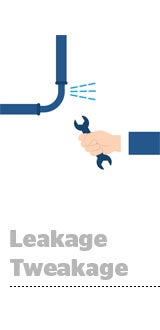The best-laid media plans of mice, men, buyers and sellers often go awry.
On Tuesday, advertising data automation company PremiumMedia360 launched a solution that reduces revenue leakage, payment issues and general reconciliation-related agita for broadcast advertising buyers and sellers.
Ad tech middlemen and agencies know the pain of slow payment. They place ads for their clients and get busy waiting, often as long as 120 days for advertisers to reconcile bids and, hopefully, pay up.
But that headache isn’t exclusively the buyer’s dilemma. TV and radio stations also feel the effect on their bottom line when errors and inconsistencies prevent buyers from paying on time.
“Before they issue an invoice, media companies make sure the ad inventory in the invoice actually ran. However, just because it ran doesn’t mean it followed the ad agency’s business rules,” said Joan FitzGerald, SVP of advanced TV global partnerships at PremiumMedia360. “That’s where reconciliation comes in: Ad agencies interrogate the invoice line by line to find ‘discrepancies’ – ads that they won’t pay for because of errors.”
PremiumMedia360 estimates that revenue leakage costs local broadcast TV companies between $600 million and $1.5 billion, and local radio between $300 million and $825 million.
“Broadcasters want to get paid for 100% of the invoice, [but] today they get paid for between 92-97%,” FitzGerald said. “Keep in mind, broadcast television is an $18 billion industry, and radio is a $16 billion industry, so 3-8% revenue leakage is a lot of revenue.”
Discrepancies are an even bigger problem for digital and over-the-top, FitzGerald said.
“Several ad agencies have reported to us that over 90% of digital invoices have discrepancies,” she said.
There are many opportunities for errors to creep in. The wrong ad might run in a time slot or two ads could run too closely together in succession. An ad may hit the air during the incorrect daypart.
In some cases, broadcasters might preempt a previously scheduled ad to run something for a higher-paying advertiser – a common and accepted business on the sell side, but a headache for buyers trying to ensure they get what they’re paying for.
“From a buyer perspective, we want to make sure that our advertisers’ slots run as originally scheduled, but if there is a preemption, that results in our client’s spot needing to get rescheduled in the form of a makegood,” said Kevin Gallagher, EVP of media and managing director at Spark Foundry, which is evaluating PremiumMedia360’s reconciliation solution.
“The best solution for us would be to change that business practice, but until we get there, we want to use automated processes to better manage this,” he said.
PremiumMedia360’s solution, dubbed CLIR, automatically ingests, combines and compares a seller’s transactional data with the data provided by the ad agency and runs interference between the two. CLIR automatically identifies any differences between the data sets.
Tracking this is usually a drawn-out, manual process with lots of back and forth.
The technology can also help broadcasters find and fix discrepancies before a campaign makes it onto the air and an invoice is even issued, which could remove the need to chase a makegood altogether. The broadcast is notified of any red flags through a dashboard and given potential solutions to fix the problems before they spiral. A buyer, for example, can be informed in advance that an ad will be preempted.
“The reconciliation process is time consuming on both sides of the desk,” Gallagher said. “Synching records electronically on the buy side and the sell side would really help eliminate some of that.”















